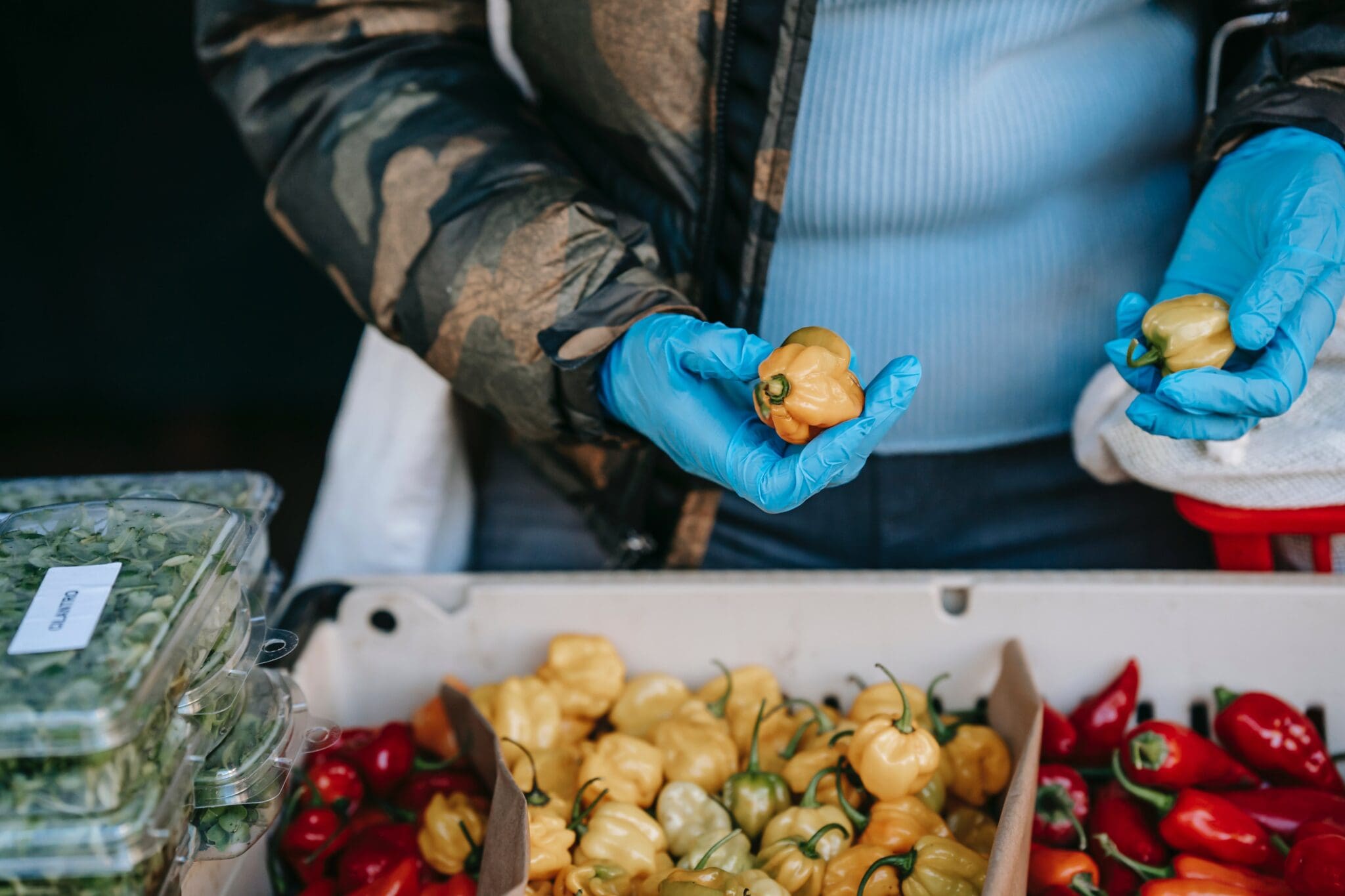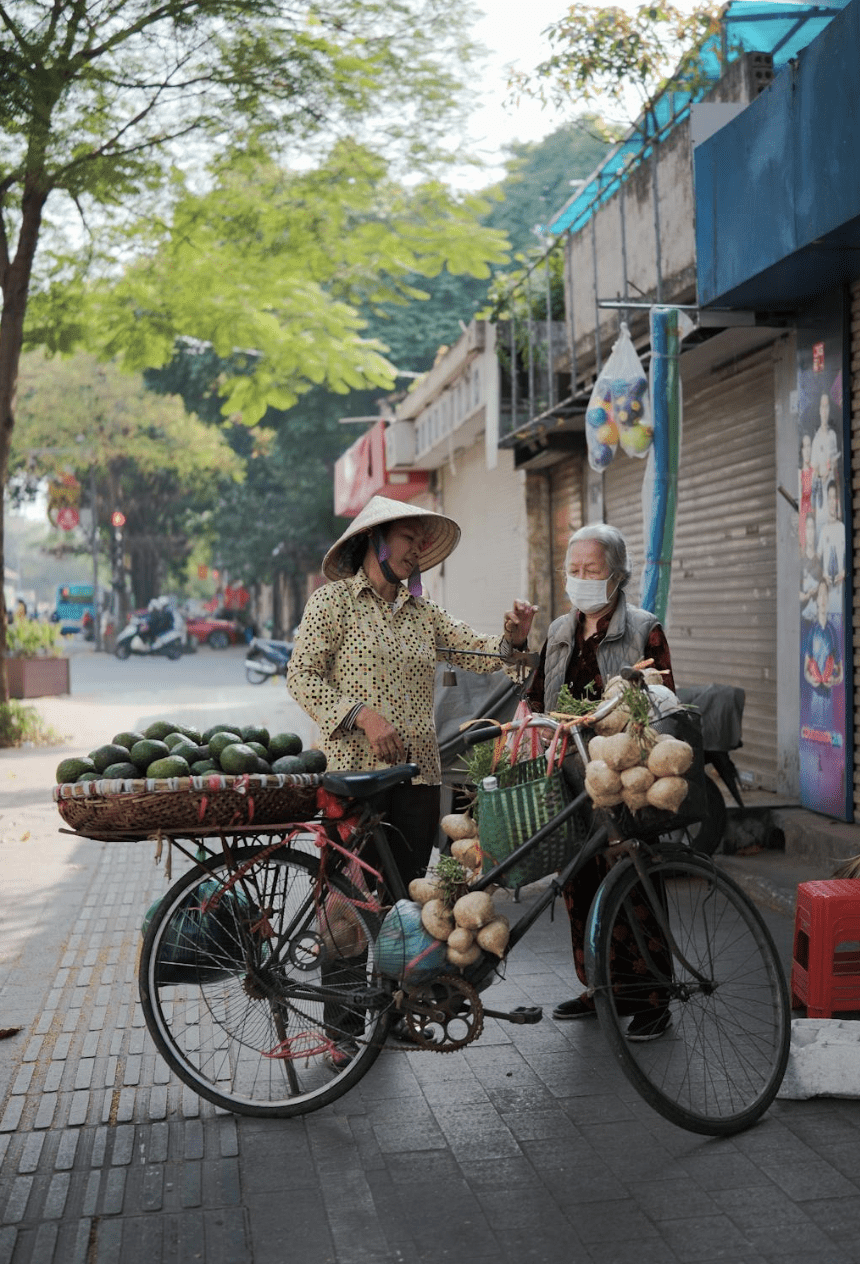From seed to plate: navigating agrifood systems and tackling food waste
Agrifood systems (or food and agriculture systems) form the backbone of our global society. From the hands of farmers to the plates of consumers, the journey of food involves a multitude of actors operating within a complex network.
- Impact Hub Network
- Global team
Understanding Agrifood Systems
Agrifood systems are intricate networks comprising primary production, food distribution, and household consumption.
Primary production involves the cultivation of crops, livestock rearing, forestry, fisheries, and aquaculture. As food moves through supply chains and transport networks, it undergoes distribution, ultimately reaching household consumption. The interconnectedness of these components is crucial, and disruptions can have far-reaching consequences, affecting supply chains and food security globally.
The global agrifood system faces numerous challenges, with climate change standing out as a major threat. Extreme weather events, scarcity of water, and biodiversity loss impact primary production and distribution, leading to food insecurity and nutritional challenges.

The cascading effects of climate change on food security
The negative impacts of climate change are distributed unevenly worldwide, with low-income countries and vulnerable populations experiencing the harshest consequences.
Low-income countries, already grappling with market limitations and transportation inadequacies, bear the brunt of these challenges. Rural populations, particularly women, face implications for health, intergenerational climate justice, and overall socio-economic well-being.
Confronting these challenges requires a collaborative effort. This is where our global Network of Impact Makers plays a crucial role in exchanging knowledge and cultivating innovative ideas.
Despite the hurdles, the agrifood sector is witnessing transformative innovations that contribute to sustainable practices. These innovations aim to improve resource utilisation, reduce environmental impact, and enhance resilience in the face of climate change.
The IGNITE Food Systems Challenge in Rwanda, hosted by Impact Hub Kigali, exemplifies such initiatives, supporting local entrepreneurs and contributing to a more sustainable and resilient food ecosystem. By providing a platform for ideation and collaboration, IGNITE addresses food insecurity through strengthening food systems.

Tackling food waste
Simultaneously, tackling food waste emerges as a critical imperative. Approximately 13% of globally produced food is lost between harvest and retail, while an estimated 17% is wasted in households, food service, and retail combined. Food waste occurs at various stages of the supply chain, from harvesting to transportation and poor planning by consumers and businesses.
Projects like deClique address food waste by collecting raw organic by-products such as coffee grounds and fruit peels from businesses. These by-products are then sold to third-party innovators and manufacturers, transforming them into new products like food ingredients, cosmetics, and biomaterials. In Sao Paulo, Connect the Dots creates a better value chain for the local food system by leveraging collaboration technology and capacity building.
In navigating the complexities of agrifood systems and addressing food waste, a collective response is imperative. The interconnected nature of these challenges requires active participation in initiatives within the Impact Hub Network. By understanding and actively engaging in agrifood systems, the Network contributes to shaping a more sustainable and equitable global food landscape.
–
This article was presented in collaboration with WWF.
For more than a decade, Impact Hub and WWF have joined forces to jointly run 40 programmes focusing on environmental impact and sustainable entrepreneurship across our global Network.
Unleash your impact potential today
Join our free global membership for the latest news, resources, and inspiring stories of entrepreneurial impact. Sign up now and ignite your journey towards making a difference.
You also might like

World Food Day: Why food systems matter for our future
World Food Day: Why food systems matter for our future

Beyond the numbers: Celebrating the Makers who drive impact
Beyond the numbers: Celebrating the Makers who drive impact

